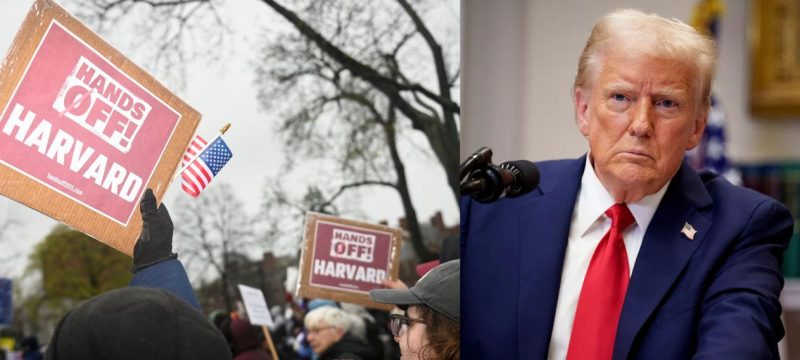The Trump administration froze about $2.3 billion in federal funding to Harvard University on Monday, shortly after the university formally rejected a list of demands from the White House regarding governance, student activism, and diversity policies. This move marks the latest escalation in a growing conflict between elite U.S. universities and the federal government over campus protests related to the Israel-Gaza conflict and allegations of antisemitism in higher education.
In a letter to Harvard, the White House had outlined ten demands aimed at addressing what it described as rising antisemitism on campuses. These included mandating “viewpoint diversity” in academic departments, monitoring students deemed “hostile” to American values, dismantling diversity, equity, and inclusion (DEI) programs, and hiring an external auditor to review specific departments.
Read more: Trump Demands Punitive Measures Against CBS Over Critical “60 Minutes” Segment
Harvard President Alan Garber responded in a letter to the university community, strongly rejecting the demands, stating that they amounted to government interference in academic freedom and violated constitutional rights. He emphasized that the university would not surrender its independence.
In response, the U.S. Department of Education froze $2.2 billion in federal grants and $60 million in contracts to the university, citing Harvard’s refusal to comply as an example of an “entitlement mindset” prevalent at prestigious universities. The department reiterated that harassment of Jewish students was unacceptable and demanded elite universities take meaningful action to address the issue if they wished to retain taxpayer support.
This is the first time a major U.S. university has openly rejected such directives. Previously, the Trump administration had revoked $400 million in funding from Columbia University, which later agreed to some of the demands. Other universities, including the University of Pennsylvania, Brown, and Princeton, are also under federal scrutiny.
Trump has heavily criticized U.S. universities for not addressing antisemitic behavior, particularly following student protests over the Gaza conflict and U.S. support for Israel. The administration’s actions follow a December 2023 congressional hearing where then-Harvard President Claudine Gay faced intense questioning regarding her handling of antisemitism allegations, which eventually led to her resignation in January.
In March, the administration began reviewing current Harvard contracts worth $256 million and potential multi-year commitments totaling up to $8.7 billion. The recent freeze represents the first significant action in this process.
Garber defended the university’s stance, arguing that the administration’s demands violated the First Amendment and were disconnected from legal principles. While acknowledging the need to combat antisemitism, he emphasized that Harvard would not allow external pressure to dictate its educational policies.
The freeze has sparked mixed reactions. Senator Bernie Sanders condemned the administration’s actions, labeling them authoritarian, while praising students for resisting political pressure. Civil rights organizations have expressed concerns that the government’s approach could infringe on academic freedom. Several faculty members have also filed lawsuits, claiming the government is using federal funding as leverage to alter university governance and suppress free speech.
Among the rejected demands were calls for Harvard to discipline students involved in past protests and to revoke recognition of certain student organizations. The White House warned that if Harvard continued to defy the administration, up to $9 billion in federal aid could be at risk.
The Department of Education’s task force on antisemitism expressed disappointment with Harvard’s response and vowed to take further action if necessary. As of Monday night, there were no signs that Harvard would reconsider its position, with Garber reiterating the university’s commitment to fostering a safe, inclusive, and intellectually rigorous campus. However, he stressed that these values could not be mandated by government decree.









